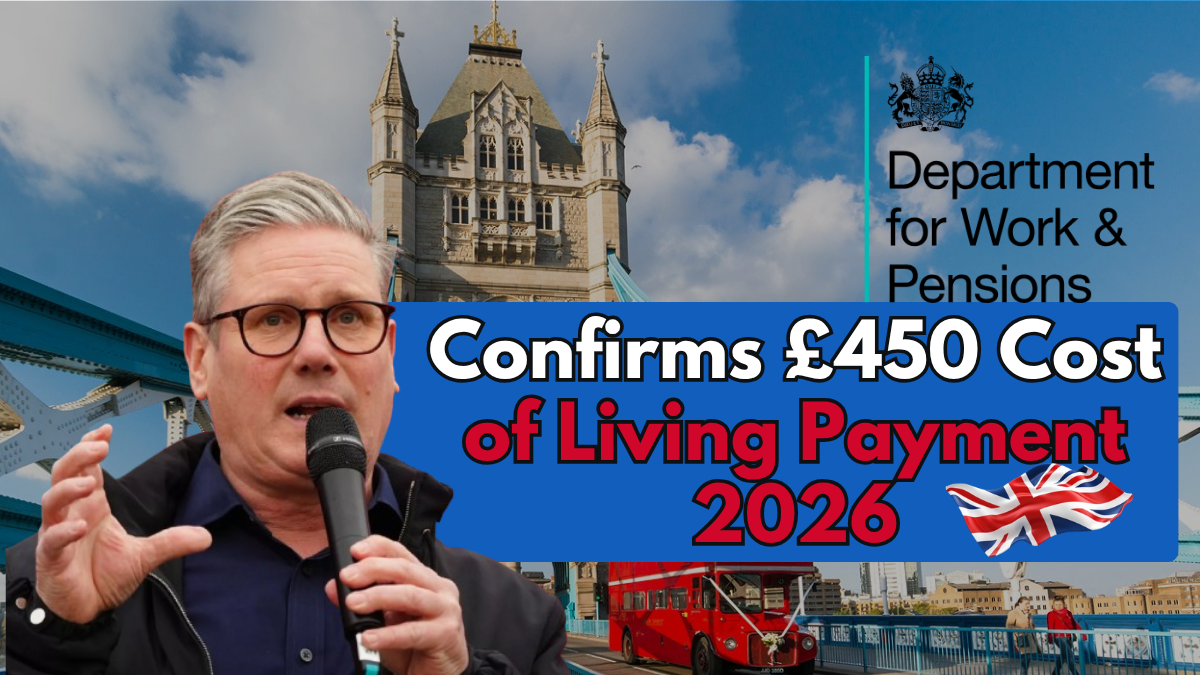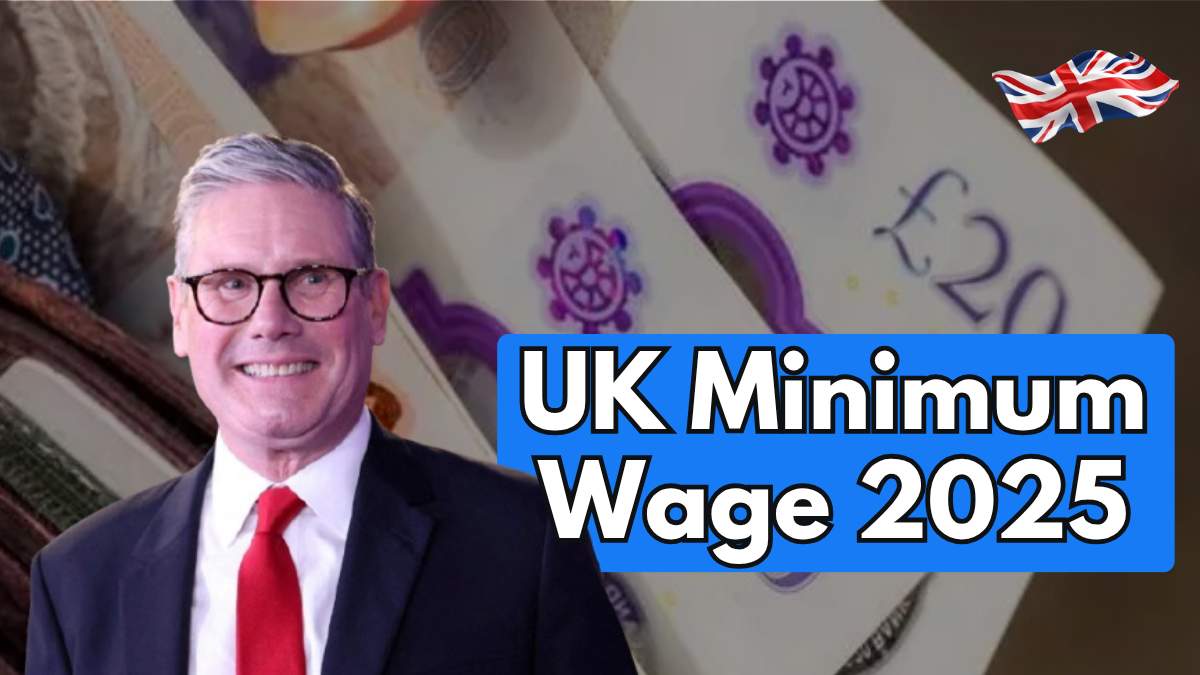The Department for Work and Pensions (DWP) has confirmed that from April 2026, Universal Credit payments will rise significantly, providing an average annual boost of £725 for millions of claimants. This is the largest real-terms uplift in decades and a central part of the government’s broader welfare reform program.
The change comes after the Universal Credit Act 2025 became law, ensuring that the rise is permanent and inflation-linked, not a one-off adjustment. Alongside this increase, the government is introducing new employment programs, mental health support, and updated protections for people with severe or terminal health conditions.
What the Universal Credit Increase Means
The £725 increase is designed to make welfare payments fairer and more sustainable, particularly for households struggling with the cost of living. This boost is not a short-term payment or temporary allowance; instead, it represents a permanent rise in the standard allowance for eligible claimants.
From 2026 onward, Universal Credit will continue to rise automatically with inflation, ensuring that payments retain their value over time. Analysts have called this one of the most significant welfare adjustments since the 1980s.
The DWP has stated that this move reflects the government’s commitment to creating a balanced welfare system—one that both supports those who need it most and encourages people who can work to return to employment.
Quick Summary
Category |
Details |
|---|---|
Scheme Name |
DWP Universal Credit Increase 2026 |
Effective From |
April 2026 |
Average Annual Increase |
£725 per household |
Affected Households |
Nearly 4 million across the UK |
Key Features |
Permanent increase linked to inflation, new “Right to Try” for disabled claimants, £3.8 billion employment support investment |
Legislation |
Universal Credit Act 2025 |
Official Website |
The “Right to Try” Guarantee for Disabled Claimants
A defining feature of the 2026 reforms is the introduction of the Right to Try Guarantee. This new initiative allows disabled individuals and those with long-term health conditions to attempt work without fear of losing their benefits.
Many people with fluctuating conditions have hesitated to seek employment in the past because a short trial period or part-time job could trigger a full reassessment. The new guarantee eliminates that risk, giving claimants the chance to test work opportunities safely and build confidence at their own pace.
Under this system:
- Disabled claimants can work part-time or on a trial basis without losing all benefits.
- No immediate reassessments will occur simply because someone attempts work.
- Claimants can choose to return to benefits if their health worsens without penalty.
This initiative is expected to help thousands of people gradually re-enter the workforce while maintaining financial stability.
Extra Protections for People with Severe or Terminal Conditions
The reforms also introduce long-term safeguards for individuals living with serious or terminal illnesses. Approximately 200,000 people classified under the Severe Conditions Criteria will no longer need to undergo periodic reassessments.
Key measures include:
- Automatic continuation of benefits for those with permanent or terminal conditions.
- Uninterrupted payments for people with limited life expectancy.
- Annual inflation-linked increases in Universal Credit from 2026/27 through 2029/30.
These updates aim to reduce the stress of repeated assessments and ensure that the most vulnerable individuals receive consistent support.
Long-Term Benefits for Families
By linking Universal Credit to inflation, households can rely on steady income growth that keeps pace with the cost of living. This gives families more stability and the ability to plan their finances more effectively.
Experts suggest that over time, this reform will help reduce poverty rates, improve living standards, and protect low-income households from economic shocks. It will also encourage financial independence by allowing claimants to move between benefits and work with greater flexibility.
DWP’s £3.8 Billion Investment in Employment and Skills
Alongside the Universal Credit rise, the government is investing £3.8 billion in employment initiatives to create more opportunities and reduce long-term dependency on welfare.
Key programs include:
- Connect to Work: A national employment scheme offering personalized coaching and job placement support.
- Pathways to Work Guarantee: Providing tailored health support and training for people looking to re-enter employment.
- Skills and Digital Learning Hubs: Helping claimants upgrade skills to match modern job market demands.
This funding represents a coordinated effort to pair financial support with practical job-readiness resources.
Reviewing Disability Assessments
The DWP has also launched a comprehensive review of how Personal Independence Payment (PIP) assessments are conducted. Led by Disability Minister Sir Stephen Timms, the review includes collaboration with advocacy groups, medical professionals, and disability rights organizations.
The goals of the review are to:
- Improve fairness and transparency in assessments.
- Reduce bureaucracy and waiting times.
- Ensure claim decisions better reflect the lived experiences of disabled individuals.
Public consultations will remain open throughout 2025, with policy changes expected in early 2026.
Reactions and Concerns
While many have welcomed the Universal Credit increase, some charities and advocacy groups have raised concerns about potential reductions in certain health-related elements for new claimants.
Organizations like Turn2us and Disability Rights UK urge the government to balance reform with compassion. They argue that while incentivizing work is important, reforms must not overlook people who are unable to work due to chronic illness or disability.
Experts emphasize that the ultimate goal should be to ensure every household has access to essentials such as food, housing, and healthcare, while promoting pathways to independence for those able to work.
A Major Step in Welfare Modernization
The £725 Universal Credit boost is more than just a financial adjustment. It signals a fundamental shift in the UK’s welfare approach—integrating income stability, disability protection, and job opportunities into one long-term plan.
With inflation indexing, reduced reassessments, and targeted employment support, the DWP aims to build a welfare system that is simpler, fairer, and more resilient for future generations.
Frequently Asked Questions
1. Who is eligible for the £725 Universal Credit boost in 2026?
All existing Universal Credit claimants and new applicants from April 2026 will receive higher payments under the new standard allowance structure, provided they meet normal eligibility criteria.
2. Is this a one-time payment or a permanent rise?
It is a permanent increase under the Universal Credit Act 2025. Payments will also rise annually with inflation to ensure consistent real-term value.
3. How will the “Right to Try” program help disabled claimants?
The program allows people with disabilities or long-term conditions to try working without losing benefits or being reassessed. It provides a safe way to test employment readiness and build confidence.
4. Will people with terminal illnesses need to be reassessed?
No. Claimants under the Severe Conditions Criteria or with terminal diagnoses will continue receiving uninterrupted payments without further reassessments.
5. When will the Universal Credit rise appear in payments?
The increase takes effect from April 2026, and claimants will see the new rates in their regular payment cycles starting that month.
Final Thoughts
The DWP’s decision to increase Universal Credit by £725 a year represents one of the most meaningful welfare reforms in decades. By blending financial support with targeted job training and protection for vulnerable people, the 2026 framework aims to help millions live more secure and independent lives.
Official Source: GOV.UK – Universal Credit
For More Information Click HERE












